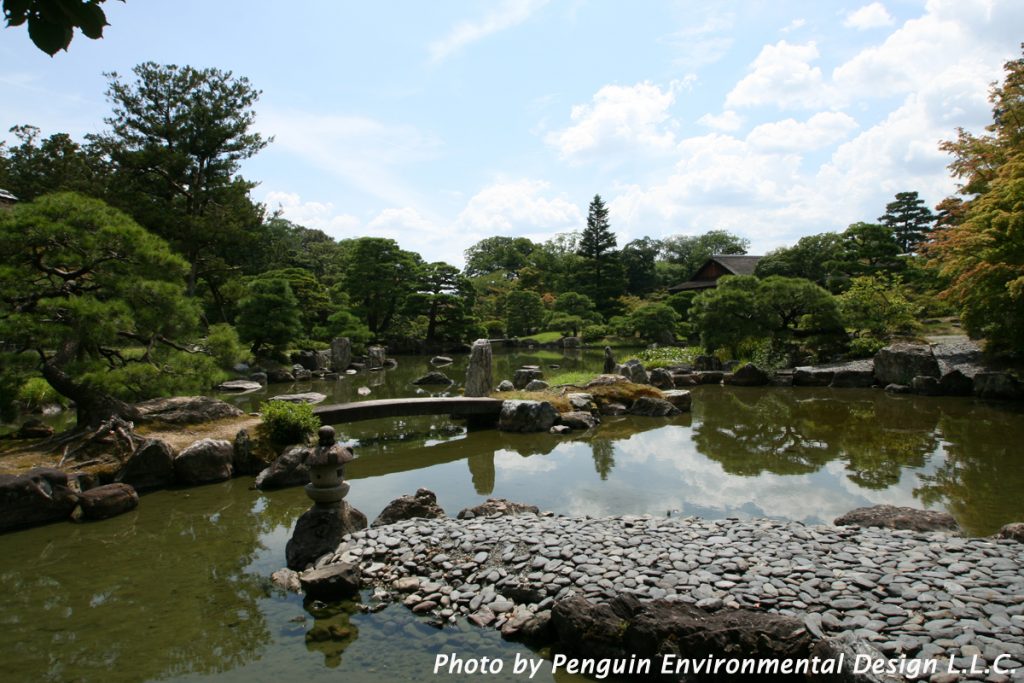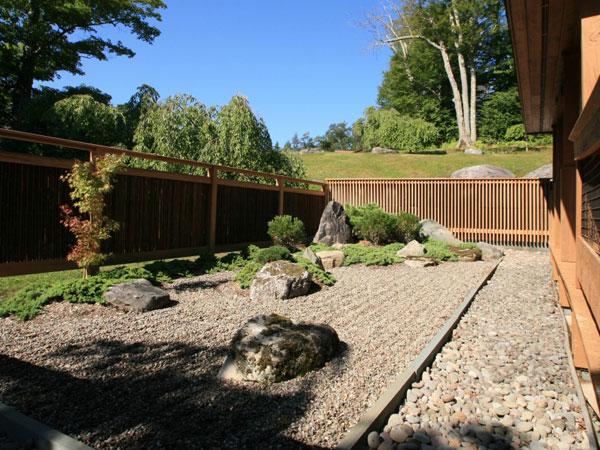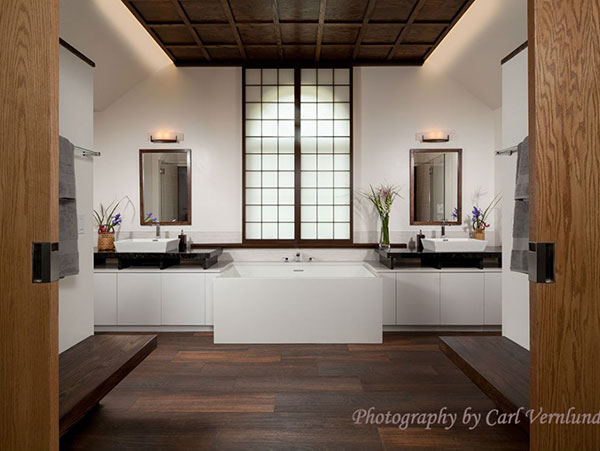At our talk in April in New York, among a variety of questions we were happy to receive, there was an interesting one that could be called a linguestic question: “What does sansui (山水) mean? Does it mean nature or a garden?”

In Japanese, san (山) means a mountain and sui (水) means water. Combined, sansui (山水) originally referred only to nature or natural landscape at least until the 12th century.
Then, around the 14th century in Muromachi period, landscape paintings in a genre called sansui-ga traveled from China to Japan. They were much cherished by the newly risen samurai class. Chinese sansui-ga has particular ways or principles in depicting natural landscape. The popularity of sansui-ga, and its principles, eventfully started to influence the garden design in Japan in that era to the extent a garden could be called sansui.
So in short, sansui could mean either nature or a garden in Japanese. The latter use in modern language is limited, though, to the case of kare-sansui (dry garden). Learning a culture and its language are interwoven, are they not?


